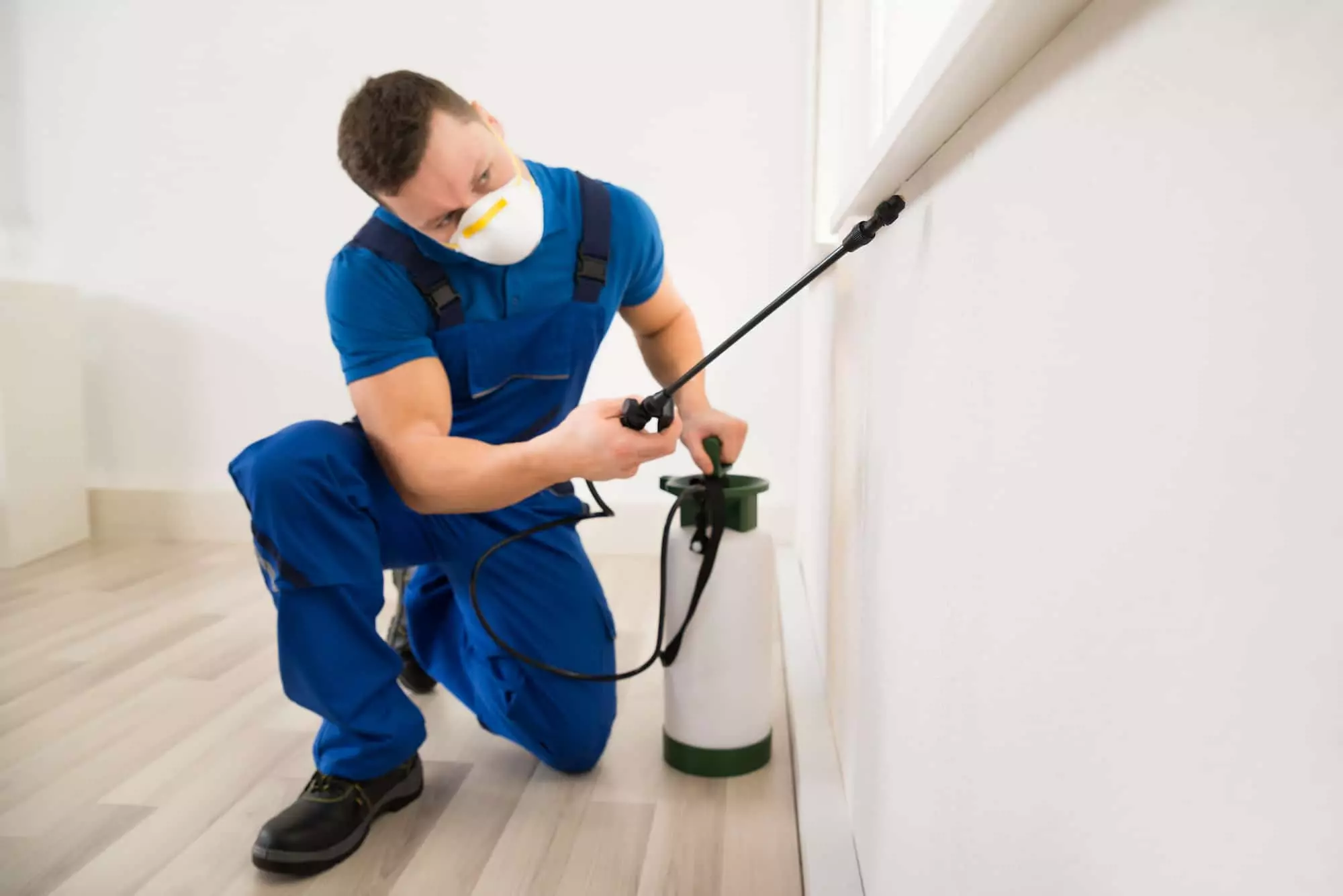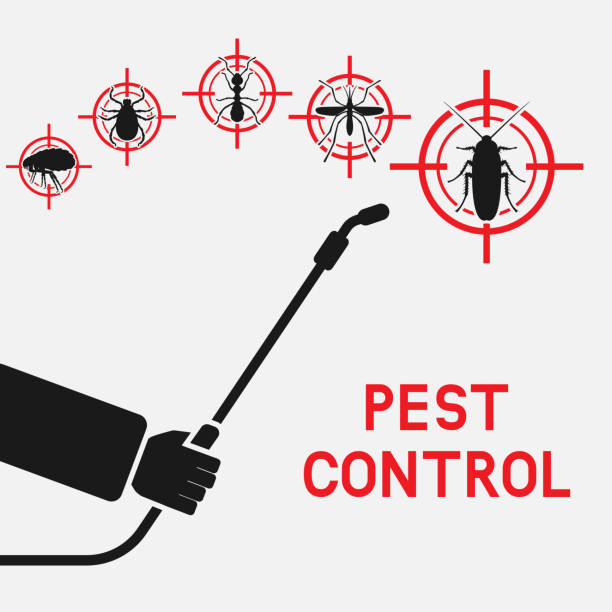Reliable Pest Control Coquitlam BC: Your Local Experts in Pest Management
Reliable Pest Control Coquitlam BC: Your Local Experts in Pest Management
Blog Article
Safe and Trustworthy Bug Control for Lasting Security
Reliable parasite management calls for a multifaceted technique that balances eco-friendly stability with the need for reliable parasite suppression. The nuances of these techniques might not be right away clear, triggering a more detailed assessment of the techniques that can lead to sustainable pest control results.
Recognizing Pest Control Approaches
Bug control encompasses a variety of techniques focused on managing and eliminating undesirable pests and rats that can endanger both health and wellness and property. Recognizing these methods is essential for effective pest administration.
The key groups of parasite control approaches consist of mechanical, biological, and chemical strategies. Mechanical approaches entail physical barriers and traps to avoid parasite entrance and capture unwanted varieties. As an example, using displays on home windows or using sticky catches can dramatically decrease bug populaces without presenting harmful substances.

Chemical parasite control is frequently one of the most recognized technique, making use of pesticides to remove pests. These chemicals can be efficient however have to be made use of with caution to stay clear of negative effects on non-target species and the atmosphere.
Advantages of Eco-Friendly Solutions
How can environment-friendly options transform bug control methods? The adoption of environment-friendly parasite control approaches provides many advantages, dramatically enhancing the performance and safety of insect administration.

An additional advantage is the positive effect on local biodiversity. Green services are developed to target details parasites while protecting useful bugs and wildlife, promoting a well balanced ecosystem. This approach lines up with the expanding consumer demand for lasting methods, enhancing the credibility of insect control companies.
Integrated Parasite Administration Strategies
The application of environmentally friendly services normally causes the fostering of Integrated Parasite Management (IPM) methods, which additionally improve insect control efficiency. IPM is a holistic approach that integrates multiple strategies to handle pest populaces while decreasing ecological effect. This technique stresses the use of organic, social, mechanical, and chemical controls, guaranteeing a well balanced and lasting approach of bug management.
One fundamental aspect of IPM is the extensive evaluation of parasite task and ecological conditions. By keeping track of insect populations and recognizing their life cycles, practitioners can apply targeted interventions that interrupt the insect's habitat or lifecycle, lowering dependence on chemical pesticides. In addition, social practices such as plant turning and environment control can substantially reduce insect establishment and recreation.
An additional critical component is the use of organic control representatives, such as helpful insects or microorganisms, which can naturally subdue pest populations. When chemical applications are essential, IPM prioritizes using low-risk pesticides and uses them precisely, decreasing exposure to non-target organisms and human beings.
Integrating IPM strategies not just improves bug control efficiency however additionally advertises a much safer community, lining up with the expanding demand for sustainable techniques in pest administration.
Safe Practices for Homeowners
Recognizing the significance of safe practices in bug control can empower home owners to effectively handle insect problems while safeguarding their health and the environment. Executing safe techniques and safety nets is vital in minimizing direct exposure to harmful chemicals.
Homeowners must initially evaluate their environment for problems that bring in pests, this hyperlink such as standing water, food, and mess waste. Routinely cleansing and securing access factors can prevent insects from attacking the home. Making use of natural deterrents, such as important oils or diatomaceous earth, can offer effective alternatives to chemical pesticides.
When chemical treatments are essential, property owners need to select items that are specifically identified as risk-free for property use. It is vital to adhere to application standards carefully to stay clear of too much exposure. In addition, utilizing targeted treatments in areas where pests are determined, instead than covering splashing, can dramatically decrease chemical usage.
Lastly, keeping open interaction with pest control professionals is essential. Home owners need to inquire regarding the security of items made use of and demand eco-friendly options whenever possible. By adopting these risk-free methods, home owners can create a healthier living setting while properly handling insect problems.

Tips for Long-Term Security
Establishing a bug administration technique that highlights long-term protection can considerably improve the effectiveness of the secure techniques previously discussed. To attain this, homeowners should apply normal examinations of their residential property, focusing on concealed locations such as attic rooms, basements, and crawl spaces. Early detection of parasite task is essential in protecting against infestations from taking hold.
In addition, keeping a clean setting is crucial. This includes appropriate food storage space, promptly cleaning spills, and routinely disposing of trash. These practices decrease attractants that attract bugs into the home. In addition, sealing entry factors, such as cracks around doors and windows, can properly obstruct possible insect access.
Landscaping should likewise be considered; maintaining plants trimmed and keeping a distance in between vegetation and the home reduces concealing places for insects. Making use of natural deterrents, such as crucial oils or diatomaceous earth, can further inhibit problems without resorting to rough chemicals.
Last but not least, working together with a professional bug control solution for regular evaluations can supply an additional layer of protection. These experts can use tailored recommendations and advanced treatments, ensuring that your home remains secured versus parasites in the long-term.
Final Thought
In final thought, reputable and safe bug control calls for a complex technique that stresses green techniques and integrated pest management. By carrying out all-natural deterrents, performing routine assessments, and keeping correct hygiene, home proprietors can substantially decrease pest populaces while securing beneficial pests and the atmosphere. Partnership with expert insect control services improves the performance of these approaches, making certain customized services that give long lasting defense and satisfaction versus future invasions.
Effective insect administration rodent exterminator needs a complex technique that balances ecological stability with the requirement for effective bug reductions. The fostering of green bug control approaches provides numerous benefits, substantially boosting the efficiency and security of pest management.The execution best site of eco-friendly remedies naturally leads to the fostering of Integrated Parasite Monitoring (IPM) approaches, which further enhance bug control efficiency. exterminator coquitlam. By keeping an eye on insect populations and recognizing their life cycles, practitioners can carry out targeted interventions that interfere with the insect's habitat or lifecycle, decreasing reliance on chemical pesticides.In verdict, risk-free and trustworthy pest control needs a diverse approach that stresses environmentally friendly approaches and incorporated pest monitoring
Report this page